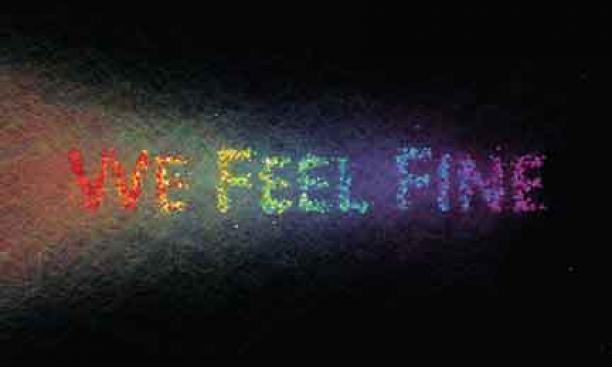

 New book: We Feel Fine: An Almanac of Human Emotion, by Sep Kamvar ’99 and Jonathan Harris ’02 (Scribner).
New book: We Feel Fine: An Almanac of Human Emotion, by Sep Kamvar ’99 and Jonathan Harris ’02 (Scribner).
The authors: Sep Kamvar, left, a computer scientist, and Jonathan Harris, an artist with a computer-science background, have used their computer and visual arts skills to mine the Internet for human feelings. The two collaborated on an interactive installation, "I Want You to Want Me," that explored people's search for love in the world of online dating (it was exhibited by the Museum of Modern Art). "We Feel Fine," originally a Web site (www.wefeelfine.org), is their latest joint project. Kamvar is a consulting professor of computational mathematics at Stanford University. His research focuses on data mining and human-computer interaction. Harris' projects range from building the world's largest time capsule to documenting an Alaskan Eskimo whale hunt. New York Arts Magazine has called him a "Renaissance man for the information age."

From the book: Observations about feeling awful: "When people talk about feeling awful, it is most common for them to talk about feeling physically awful. It is usually mentioned when they are feeling sick, or when they have the flu, a fever, a headache, or an infection. It is also very common for people who feel awful to say that they wake up feeling awful. People also frequently say that they feel awful for breaking up with somebody who loves them. And people also feel awful for forgetting the birthday of someone who is close to them."
Reviews: The Fort Worth Star Telegram called the book "a collection of hope, sadness, and grievance that can be seen as a global Rorschach." Dailycandy.com said that "sentiments spring to life via pages of user-contributed emotions and accompanying photos." By Katherine Federici Greenwood
Read about more Princeton authors on The Weekly Blog and view a complete list of works by alumni, faculty, and students at PAW online.
